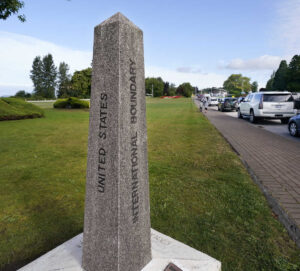A fast food restaurant dating back to Roman times is once again opening its doors to guests.
The archeological site, located in the ancient city of Pompeii, will allow visits from the public beginning August 12, The Telegraph reports. First unearthed in 2019, the thermopolia—meaning “hot drinks counter” in Latin—has offered a glimpse into the lives and diets of ancient peoples.
The ancient city, located in present-day Campania, Italy, is known for its apocalyptic ending. In 79 A.D., Pompeii was buried in volcanic ash after the eruption of nearby Mt. Vesuvius. The series of blasts led to the town being covered in “super-heated ash and air which asphyxiated and literally baked the bodies of the entire population,” according to World History Encyclopedia. As a result of the horrifying tragedy, however, the city and its relics have been remarkably preserved, offering researchers a time capsule of ancient life.
In its heyday, the city boasted a population of 10,000 to 12,000 and was known as “a [favorite] playground of Rome’s well-to-do.”
ROBERTA BASILE/AFP/Getty Images
While archaeologists have found more than 80 other examples of these eateries at other sites, The Telegraph notes that this one is better-preserved than most others. The news outlet added that the so-called “fast food joint” is an ancient ancestor to Italy’s modern-day equivalent, the “tavola calda”—roughly, a cafeteria serving pre-made food.
This particular establishment once served a range of dishes, including “snails, duck, pig, goat and fish,” the trace remains of which were discovered in terracotta pots found at the site.
The Guardian added that, based on the remnants, researchers suspect that paella may have been one dish served at the ancient restaurant.
These types of “fast food” establishments were reportedly frequented by Pompeii’s poorest residents, as their homes would not have been equipped with kitchens—hence, the need to purchase food that was cheap and pre-prepared. “Typical menus included coarse bread with salty fish, baked cheese, lentils and spicy wine,” reported The Guardian.
The thermopolia, which was discovered in Regio V, in the northeastern section of the city, is also notable for its remarkably preserved frescoes.
As Newsweek reported in 2019, the snack bar’s counter features two paintings. The first depicts a sea nymph sitting on a horse, while the second shows a worker in an environment similar to the thermopolia. The latter, according to archeologists, is comparable to “a modern shop sign advertising the nature of a business.”
Newsweek has reached out to the Archaeological Park of Pompeii for further comment but did not hear back in time for publication.



















